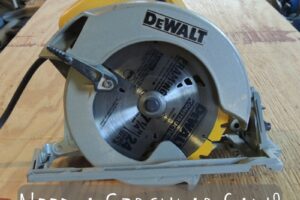If you’ve been hanging out with me here on the blog or on Instagram you’d know Todd and I are on the hunt for house to flip (or a multifamily property to use the BRRRR strategy on!)
In fact, we’ve been seriously looking for a house to flip for over 5 months now and it’s getting pretty tiring. We’ve put a few offers out there but in our crazy market we are always outbid by crazy people who are willing to make a lot less on a deal than we are. It’s also a little difficult for us because we need a large profit margin since we’re splitting our profits with an investor.
But I digress as usual. Over the years, we’ve put a lot of offers on bank owned property (REO) and become familiar with what a lot of banks are looking for in an offer.
There is definitely some strategy involved when a making offers in any real estate deal but I think real estate owned (aka REO aka bank owned) property adds a whole other layer of difficulty to the mix. The one upside? The banks don’t really have feelings like a homeowner would so you don’t have to worry too much about breaking someone’s heart or offending them with a low ball offer.
 What does a bank look for in an offer on a real estate owned or bank owned home?
What does a bank look for in an offer on a real estate owned or bank owned home?
Every bank is different but first and foremost they are usually looking for the most MONEY! They want to recoup as much of the original loan as possible, wouldn’t you? In most circumstances, homes that are foreclosed on are underwater (owing more than the home is worth!)
However there are instances where banks are smart and think about a little more than just money… like getting the home off their books as quick as possible. Because really, banks don’t want property! They want money. They don’t loan out property to make money, they loan out money to make money.
There are a few smart banks that realize vacant homes become dilapidated more quickly than occupied homes and they won’t be able to recoup their costs if they let it sit and continue to get worse.
So with those things being said, what else besides money does a bank look for in an offer on a real estate owned or bank owned home?
They often love when a buyer can close as quick as possible, which often means paying in cash! Most regular home buyers don’t have all cash and write offers that are contingent on financing. The banks know if the financing falls through at the end of a 45 day escrow, they have to start all over and look for a new buyer.
At this point the house has been vacant for another month and half and now the listing is “stale” and probably won’t attract the same interest as when it was first put on the market. Investors work quick and move on quick. (So if you’re looking for a fixer upper to actually move into and live in, stale bank listings can be a great place to start looking for a deal.)
After money, cash offers and quick closings, banks like to see when an offer waives inspections! GASP!!! I know that sounds shocking and crazy and super scary but truthfully, we’ve never had an inspection on a flip, aside from a septic inspection. I always recommend an septic tank inspection because that could run close to $40,000 to fix or replace if need be – which could totally kill your profit and even result in a loss.
I am going to go on the record here and shout loud and clear that it’s a terrible idea to waive inspections. Even if you know what you’re doing, you don’t know what you don’t know and could run into some major problems if the inspection is waived.
Okay, with my disclosure that I DO NOT RECOMMEND YOU WAIVE INSPECTIONS… I’ll continue.
The reason it’s good to waive inspections is because now you don’t have an”out.” Why would that be good? Let me clarify. It’s good in the eyes of the bank because in most real estate transactions the buyer comes back to the seller asking for money off the house because of a problem discovered during inspection. If the seller refuses to fix the issues or at least negotiate the deal could fall through. With waived inspections there’s no way this can happen.
If you put an offer in waiving inspections, you can totally still do all the inspections you want, you just can’t go back to the bank and ask for money off the house after you discover them.
So those are the four tips to implement into your REO offer strategy!! But again, don’t implement number 4 and come crying to me. Waive inspections at your own risk.
4 REO Offer Strategy Tips
- Offer lots of money
- Pay in cash
- Close quick
- Waive inspection contingencies
So I hope that helps with your REO offer strategy when it comes to making offers on bank owned property! I actually prefer offering on bank owned properties because like I said above, there aren’t any emotions involved. Sometimes homeowners will put a premium on their home just because it’s where they raised their kids or where they got married or the first home they ever bought with their spouse… the list goes on and on. Banks don’t have feelings and that’s a beautiful thing in real estate.
Do you have a good question? If I use one of your questions in a blog post and you’re a fellow blogger, I’ll share a link to your site in the blog post! Get your questions answered and drive traffic to your blog! Win win!





